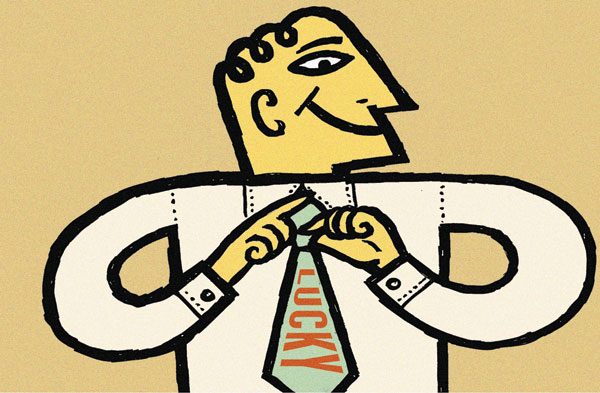There are many opportunities in everyday life to associate consumer products with success or failure. For example, imagine a situation in which a Saints fan is at the Superdome, watching the team lose badly. During halftime, he purchases and consumes a Dr. Pepper. Subsequently, the team rallies to win. Months later, during an important playoff game, the fan may perceive that his team needs a boost. Remembering that drinking Dr. Pepper seemed to trigger a previous victory, he decides to purchase it again in order to help the team.
Such an association between a product (Dr. Pepper) and an outcome (football victory) has no basis in reality. Therefore, acting on this association—by shifting preferences towards the lucky option in an attempt to create a favorable outcome—is labeled “conditioned superstition.” For a forthcoming article in the Journal of Consumer Research, co-author Gita Johar and I investigate when people are most likely to engage in conditioned superstition and what happens after they do so.
In the article, we present five experiments indicating that preference for lucky products—that is, those associated with positive outcomes—increases when higher levels of desire for control are combined with lower levels of perceived ability to exert this control. People who make superstitious choices believe that these selections will be effective in helping them achieve the desired outcome.
In the experiment, right-handed adults were directed to play the children’s game of Rock, Paper, Scissors. Those who won more matches with their left—as opposed to right— hands engaged in superstitious behavior, as they preferred to continue playing with their non-dominant left hands. However, this superstitious behavior was more likely to occur among participants who scored high on a measure of “desire for control.” Moreover, those who preferred to play lefthanded— after associating this hand with victory—perceived they were more likely to win future matches. High levels of desire for control resulted in a preference for the lucky option, which in turn led to more optimistic predictions of future outcomes.
When people desperately want to achieve something that they perceive to be out of their grasp, they are willing to resort to irrational strategies, such as superstition, which in turn lead to more optimistic future predictions. In some cases, this can be positive, as optimism is generally good for one’s mental health. However, superstition can also distract people from rational strategies for success, such as relying on a “lucky” pen to get you through an exam instead of studying.
Encouragingly, we found several strategies for reducing reliance on superstition. Two of our experiments found that participants reduced their likelihood of superstitious behavior after receiving a self-affirmation and with high levels of generalized self-efficacy, respectively. Self-affirmation bolsters people’s internal resources and makes the idea of failure less threatening, while generalized self-efficacy is the perception that one can handle anything that comes his or her way. When you have a positive self-image that comes from within, it’s less important to seek good luck from a pair of socks, a can of cola or a brand of breakfast cereal.
Eric Hamerman is an assistant professor of marketing. His article “Conditioned Superstition: Desire for Control and Consumer Brand Preferences,” co-authored with Gita V. Johar, will be published in the Journal of Consumer Research in October 2013.


